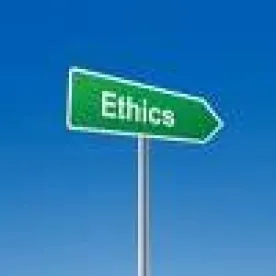New York and many other states require that standard disclaimers be included in all lawyer advertising. But just how can you cram the required verbiage into a 140-character tweet?
That issue was among the topics addressed by a section of the New York State Bar in its new guidelines for attorneys’ use of Social Media.
Here’s your answer: It is okay to use commonly accepted abbreviations when typing required details and disclaimers into a tweet used to promote your practice, according to “Social Media Ethics Guidelines of the Commercial and Federal Litigation Section of the New York State Bar Association.”
The guidelines, released March 18, provide to lawyers in one of the nation’s largest jurisdictions some new advice about how to keep their Social Media activities within the bounds of legal ethics rules.
Although the guidelines are not binding and are tailored to one jurisdiction, they provide insight into the latest thinking on how traditional rules of professional conduct apply in the rapidly expanding universe of Social Media.
Tweets were only one of the subjects addressed in the guidelines. Others include:
-
How ethics rules on lawyer advertising apply to Social Media.
-
Avoiding ethical pitfalls raised by listing “specialties” on Social Media profiles.
-
A lawyer’s responsibility for the content on his or her Social Media outlets.
-
Answering legal questions on Social Media without creating an attorney-client relationship.
-
Not violating restrictions on client solicitation while using Social Media.
Ethics Rules Apply When You Use Social Media to Promote Your Practice
Unless the Social Media accounts are being used for purely personal purposes, the rules on lawyer advertising apply to attorneys’ communications on Social Media, according to the committee that wrote the guidelines. If an account is used both personally and professionally, the safe bet is to assume that it is subject to rules, the guidelines say.
That is true even when dealing with platforms such as Twitter that emphasize brevity. “A lawyer’s post, including a ‘Tweet,’ that is used to promote the lawyer’s legal services or the services of the law firm for which the lawyer works is subject to the ethical rules where the post’s primary purpose is to bring in or retain legal business. In order to satisfy Twitter’s 140-character limitation, lawyers may utilize commonly recognized abbreviations for information that is required in attorney advertisements,” the guidelines say.
Do Not Inadvertently Call Yourself a ‘Specialist’ Unless You Are One
The committee urged lawyers to be cautious about listing their practice areas under headings such as “Specialties” on profile templates unless they have received certification in that area. If the Social Media profile does not allow users to alter headings, the guidelines advise lawyers to list their practice areas in other sections of their profile.
Be Careful What Others Post on Your Social Media Sites
Although a lawyer may not be directly responsible for what others post on his or her Social Media site, the committee said lawyers must use caution regarding ethics rules on attorney recommendations. Attorneys cannot get someone else to post advertising material on Social Media in an attempt to dodge restrictions on attorney advertising, according to the guidelines.
Lawyers must monitor comments on their blogs and Social Media sites for violations of rules on lawyer advertising, the committee said.
“While a lawyer is not responsible for a post made by a person who is not an agent of the lawyer, a lawyer’s obligation not to disseminate, use or participate in the dissemination or use of advertisements containing misleading, false or deceptive statements includes a duty to remove information from the lawyer’s social media profile where that information does not comply with applicable ethics rules. If a post cannot be removed, consideration must be given as to whether a curative post needs to be made,” the guidelines say.
Avoid Forming an Attorney-Client Relationship When Answering Questions
Answering general legal questions posed on Social Media “is analogous to writing for any publication on a legal topic,” the committee said. The troubles arise when a lawyer provides specific advice—an action that could form an attorney-client relationship.
In addition to inadvertently taking on a client through interactions on Social Media, the guidelines stress that lawyers must be careful about actively soliciting clients online in violation of ethics rules. However, if a potential client uses Social Media to ask a lawyer to represent him or her, the attorney may respond privately and confidentially.
“A lawyer is permitted to accept employment that results from participating in ‘activities designed to educate the public to recognize legal problems,’” and that includes communication on Social Media, according to a comment in the guidelines.
Need Help Managing Your Law Firm’s Social Media Presence?
Social Media can be an effective tool for building your law practice—but, like all lawyer advertising, it carries significant legal ethics concerns. The lawyer has ultimate responsibility for staying in compliance with all rules of professional conduct in the jurisdiction where he or she practices.



 />i
/>i

